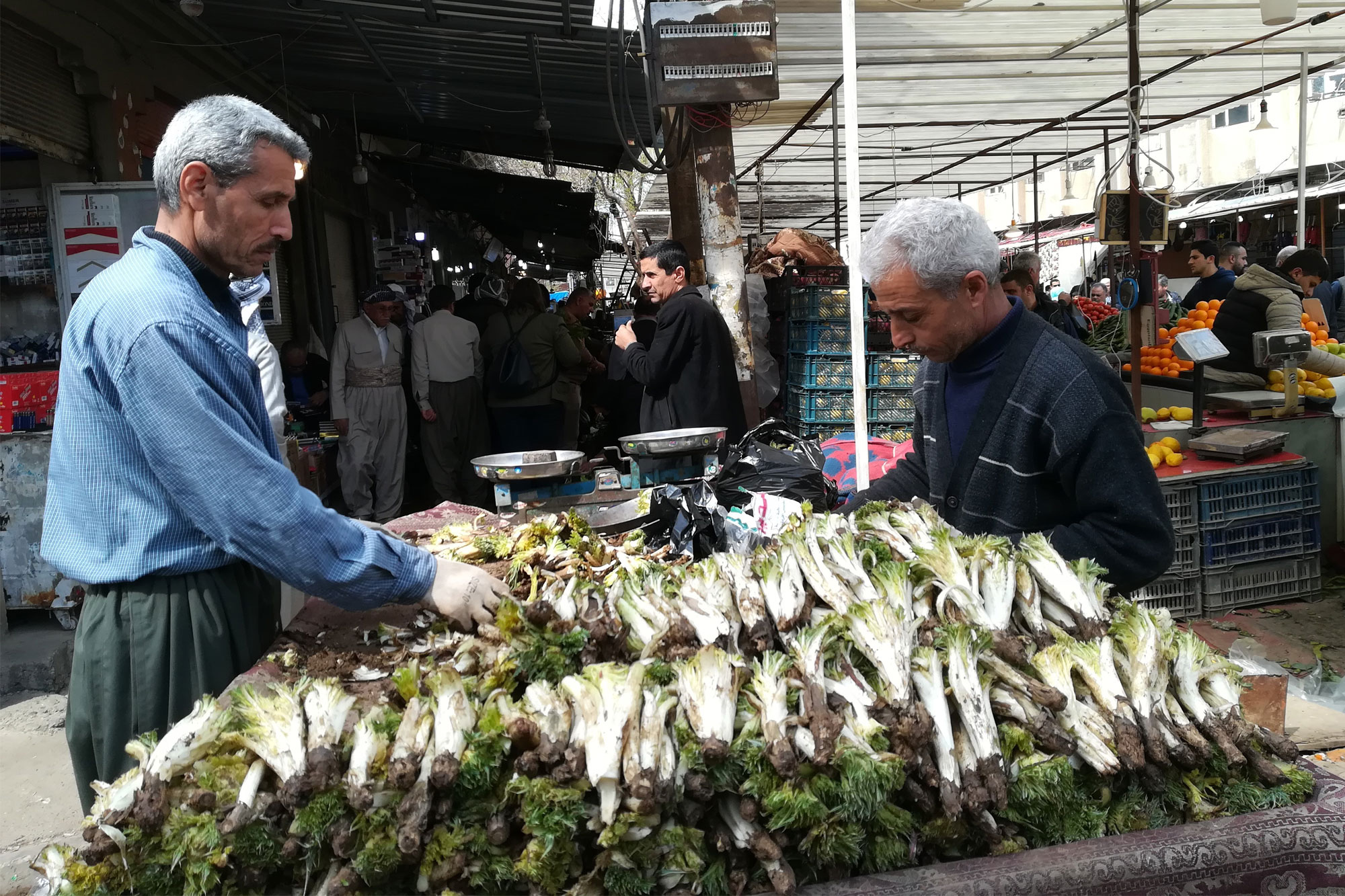The Annual Ethnobotany Lecture was founded in 2000 and is a highlight of the academic year for the postgraduate programme. It is sponsored jointly by the Centre for Biocultural Diversity at Kent and the Royal Botanic Gardens, Kew. The lectureship is awarded to ethnobotanists who have made a significant impact on the subject and who have established a reputation in the public understanding of science. Recent lecturers have included Gary Martin, Victoria Reyes-Garcia, Will McClatchey and Nancy Turner.
Annual Kent-Kew Distinguished Ethnobotanist Lecture 2019
‘Shifting geographics of ethnobotany: How Iraqi is the Mediterranean diet?’
Professor Andrea Pieroni, University of Gastronomic Sciences, Pollenzo, Italy
The Mediterranean Diet, now recognised as an intangible cultural heritage of humanity, has been and still partially is a food system largely based on wild vegetables, which have been surprisingly neglected in both bio-scientific and historical-anthropological food studies. These complex ethnobotanical foodscapes possibly emerged in the Neolithic period in the Fertile Crescent and migrated westwards through the Mediterranean area. This presentation will show the wild-food ethnobotany of diverse populations of the Middle East and the Caucasus, and will discuss the similarity between the wild vegetables gathered and consumed by Christian communities in Iraq, who possibly represent the descendants of ancient Assyrian and Mesopotamic populations, and those of the Greek and Sicilian traditional diets. We will eventually propose the idea that wild vegetables should be considered indelible signatures for understanding the origins of dietary systems.
Previous Lectures
- 2018
Discovering new wild edible plants in Europe: From 19th Century famine potherb to 21st Century hipster food
Dr Łukasz Łuczaj - 2017
In the footsteps of Rumphius: History and ethnobotanical entanglements in the spice islands
Emeritus Professor RoyEllen, FBA - 2016
Local names reveal how enslaved Africans recognised substantial parts of the New World flora
Tinde van Andel - 2015
Why ritual and incense plants are important
Caroline Weckerle - 2014
Evolutionary Ecology as a Driver of New Questions in Ethnobotany
Doyle B. McKey - 2013
The Ethnobiology of Crop Domestication and Evolution: Fostering resilience of social ecological systems in the Anthropocene
Pablo B. Eyzaguirre, Senior Scientist, Bioversity International - 2012
Medicinal plant trade, conservation and local livelihoods in southern Morocco
Gary Martin - 2011
Ethnobotany of the Home and Hearth
Will McClatchey - 2010
The dynamics of ethnobotanical knowledge in a globalized world: examples from the Tsimane indigenous people (Bolivian Amazon)
Victoria Reyes-García - 2009
Bringing the food back home indigenous foodways, nutrition and biodiversity indigenous foodways, nutrition and biodiversity in western Canada.
Nancy Turner - 2008
Austrian alpine ethnobotany: examples and trends for the use and management of plant species in the Austrian Alps
Christian Vögl - 2007
Local perceptions and forest policy: conservation and logging in Papua New Guinea
Paul Sillitoe - 2006
Taking stock of nature? Ethnobotany and action in participatory ecological governance
Anna Lawrence - 2005
Ancient trees and what people do to them
Oliver Rackham - 2004
Gender bias in ethnobotany: propositions and evidence of a distorted science, and promises of a brighter future
Patricia Howard - 2003
The origins and spread of agriculture: a comparative world view.
David Harris - 2002
Globalization of traditional knowledge systems: implications for innovation, flow and appropriation of knowledge
Miguel Alexiades - 2001
Plants and people in Amazonian Peru
Oliver Philipps - 2000
The light at the edge of the world: vanishing cultures, enduring lives; an ethnobotanist’s view
Wade Davis

